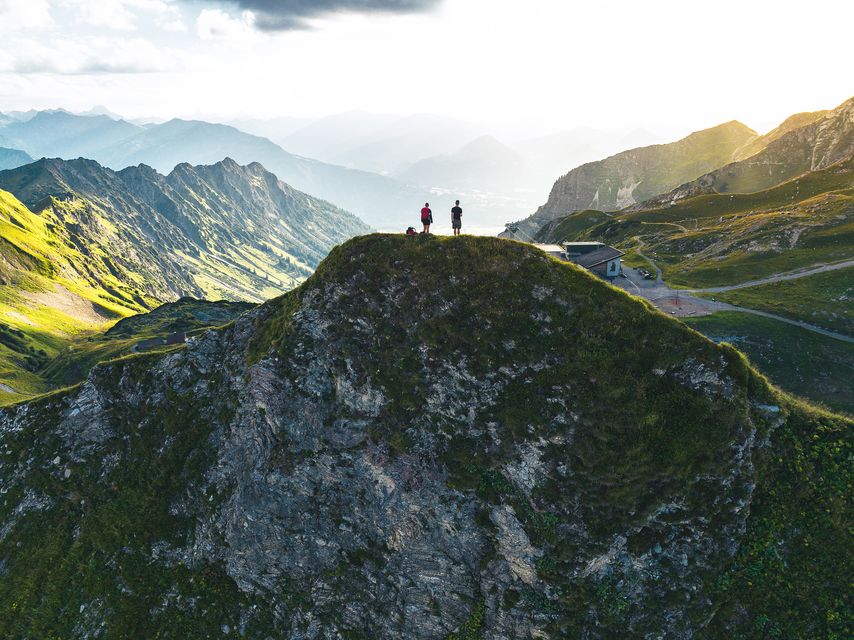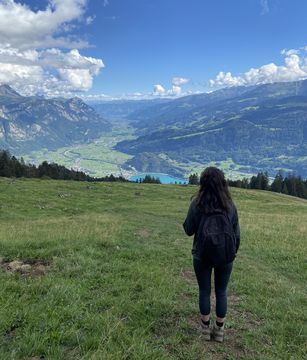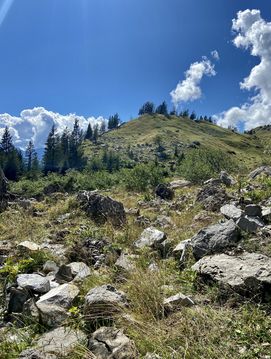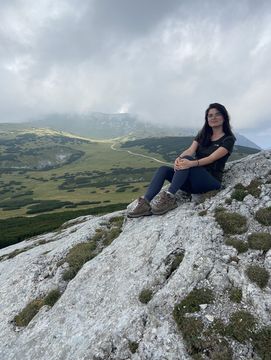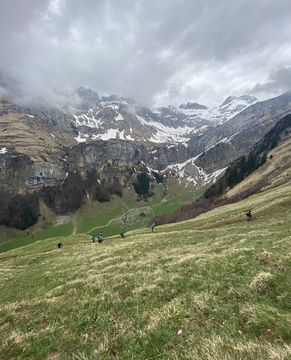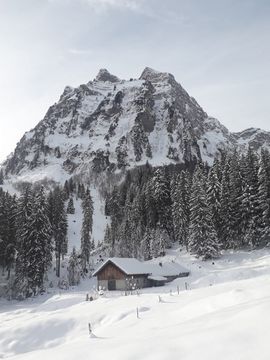The preparations begin
Europe’s Alpine region spans eight countries: France, Monaco, Italy, Switzerland, Liechtenstein, Austria, Slovenia and, of course, Germany. For many people in other parts of the world, this region is what comes to mind when they think of Germany – in much the same way that people tend to equate Bavarian beer gardens and lederhosen with German culture – and Ioana-Catalina was no exception. She yearned for the time when she could return to Germany and her beloved Alps. ‘The image of the mountains etched in my memory kept me going until I could return. In Romania, I began to make plans. I researched hiking routes and read everything about the Alps that I could lay my hands on,’ Ioana-Catalina says. ‘I had already planned a few short trips, and my parents gave me a pair of proper hiking boots.’
